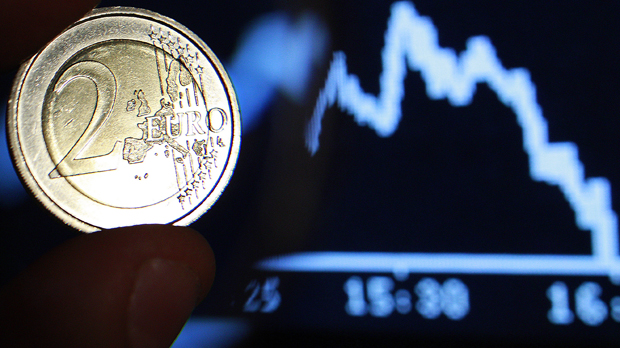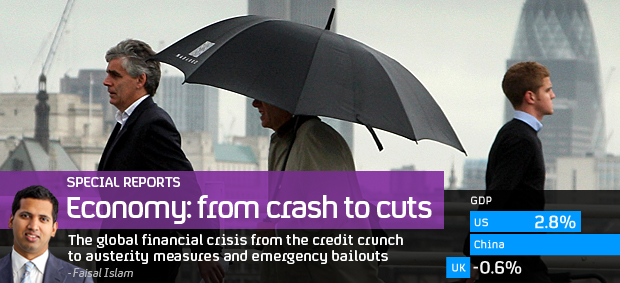Volatile markets struggle amid economic uncertainty
 Siobhan Kennedy
Washington Correspondent
Siobhan Kennedy
Washington Correspondent
If anyone was hoping the US would shrug off its debt downgrade or the ECB decision to mop up risky Italian and Spanish bonds would have a positive effect, hopes have been dashed says Siobhan Kennedy.

One look at the blood red across global trading screens tells the story in a flash. There was no hope. Asian stock markets all down, Frankfurt down, France down, Italy down, Spain down, London down and of course, the US down.
The FTSE in particular plumbed particularly depressing lows, closing down 178 at 5068.9 this afternoon, a loss of more than 3 per cent and the first time in its 27-year history that it has suffered falls of more than 100 points for four sessions in a row.
Stocks did briefly rally after the European Central Bank (ECB) announced plans to step in and buy up troubled Italian and Spanish bonds to help lower those countries borrowing costs. And both Italy and Spanish bonds did close lower. But – as we have seen so many times before in this crisis – the relief was short-lived and soon panic resumed its ever-present grip.
It seems that fears over the US debt downgrade superseded any good news in Europe as investors rightly worry that troubles inside the world’s biggest economy could have a nasty knock-on effect on global growth.
But there were also concerns that the ECB’s action was a mere stop-gap or “sticking plaster” as one analyst put it. And that’s because it wasn’t driven by affirmative action by Europe’s policymakers – that’s still sorely lacking – but was instead a knee-jerk, give-the-markets-what-they-want type reaction.
And that can only ever bring temporary reprieve. What the markets want to see is joined up thinking, on both sides of the Atlantic, to solve the global debt crisis.
But what it keeps seeing, instead, is prevarication, half-actions and more prevarication. No wonder those fears spread to France today, with the cost of insuring France against a debt default rising to a record high. This is scary stuff.
It’s hoped that when eurozone leaders come back from holiday (amazing to some that they’re still vacationing during a crisis that’s fast descending into credit-crunch style proportions) that they’ll get on with bolstering the powers of the European Bail-Out fund, expanding its size and maybe even launching the much-vaunted Eurobond that many say would put markets to rest once and for all. But given their record of past-decision making, investors are clearly not holding their breath.
As one analyst at Nomura put it: “There’s been no acceleration of the timescale to try and reach a consensus. Parliaments are still set to vote only towards the end of September on the expansion of the rescue fund and even then there’s going to be a lot of dissension about it, a lot of debate, and the debate will throw the bond markets and the stock markets into a frenzy.”
So do we expect further market chaos in days to come? You bet we do.
